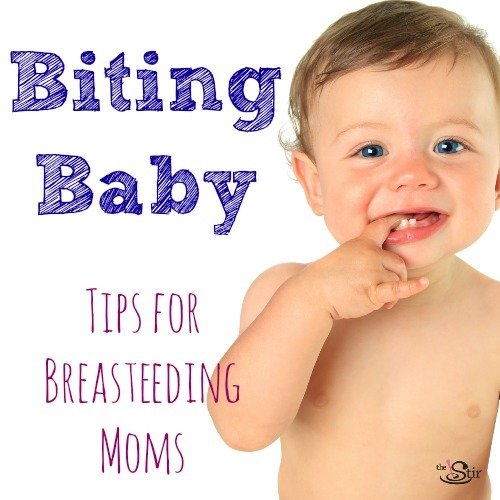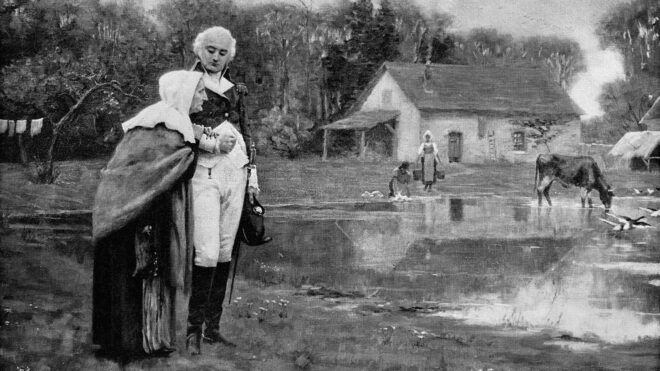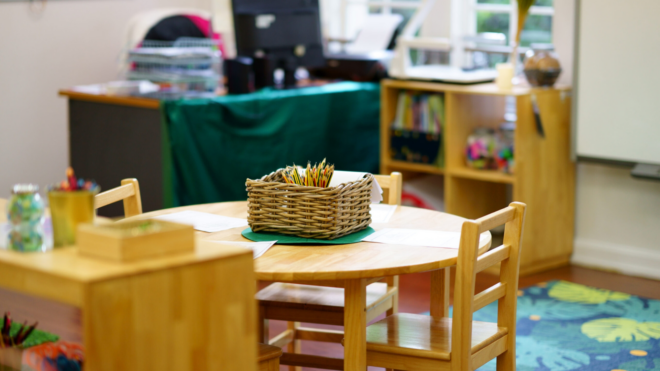Is there anything worse than your baby biting on your nipple during a breastfeeding session? Talk about pain! When babies start biting, some moms get frustrated and stop nursing. Others just grin and bear it. But there's no reason to do either.
You can figure out why your baby is biting and implement some tips to overcome it (saving your poor nipple in the process).
According to Almarine Clark-Meagher, RN and certified lactation consultant at Harvard Vanguard Medical Associates, babies may clamp down on the breast for several reasons, including a fast milk flow, a slow milk flow, a low supply of milk, and teething pain or discomfort. It could also be that your baby is simply distracted while breastfeeding.
Your child can give you clues as to what's bothering them. Sometimes it's process of elimination if there's not a clear winner (i.e., milk pouring out of your breasts too fast so baby can't keep up).
The good news? A bite-happy child doesn't mean you have to give up breastfeeding. Most issues can be remedied to make your child — and you — more comfortable:

Problem: Fast Flow
Solution: "If the flow is too fast, mom can place her fingers around her areola to let off the first big splash," suggests lactation consultant Leigh Anne O'Connor. "You can also lay down or recline to nurse — think anti-gravity positions."
Problem: Slow Flow
Solution: "For a slow let down, mom can express while the baby is nursing," said O'Connor.
Problem: Low Milk Supply
Solution: Frequent feedings, adequate rest, good nutrition, and drinking enough fluids can help maintain a good milk supply.
Problem: Ear Issues
Solution: If you suspect ear issues, upright nursing can helps with the discomfort.
Problem: Teething
Solution: If your baby is teething, implement comfort strategies prior to every breastfeeding session until his new tooth or teeth break through. Moms can have a teething toy or a cold washcloth on-hand for baby to bite down on for that purpose. You can also consult your baby's pediatrician to see if a pain reliever makes sense.
Problem: Distraction
Solution: If your baby appears to be distracted or pulling away from your breast, Clark-Meagher suggests positioning him so he is facing you. That way, you can recline or lean back more than usual. This position allows your baby to possibly open wider, offer a wider gape, and help bring his jaw and tongue forward for a more "cushioned" latch and suckle.
More from The Stir: The Ultimate Guide to Breastfeeding
If you're not sure what's causing baby to bite, there are still options to help make it stop. Kathleen Doherty, lactation consultant at Westwood-Mansfield Pediatrics in Massachusetts, suggests quickly removing your baby from your breast when he bites. "Lightly tap your baby's lip and say 'no' … but do not raise your voice too much," she says. "Remember, your baby is not setting out to hurt you>; he is just exploring."
One thing to avoid is scaring baby, says O'Connor. "If a baby bites, mom should take the baby off and say 'no biting' in a firm but emotionally neutral tone," she says.
This negative attention should be enough to end the practice.
"If a baby wants to nurse, he will not bite if it is taken away frequently enough," O'Connor explains. "Most babies who are old enough for teeth can understand this communication on some level."
Most of all, experts encourage you to not give up. If you're consistent, baby will likely respond to the aforementioned techniques to alleviate the biting … so you can get back to enjoying the bonding experience of breastfeeding.
__Did your baby bite you while breastfeeding? How did you overcome it? __
*Images via © Arman Zhenikeyev/Corbis; © iStock.com/HannamariaH
*




